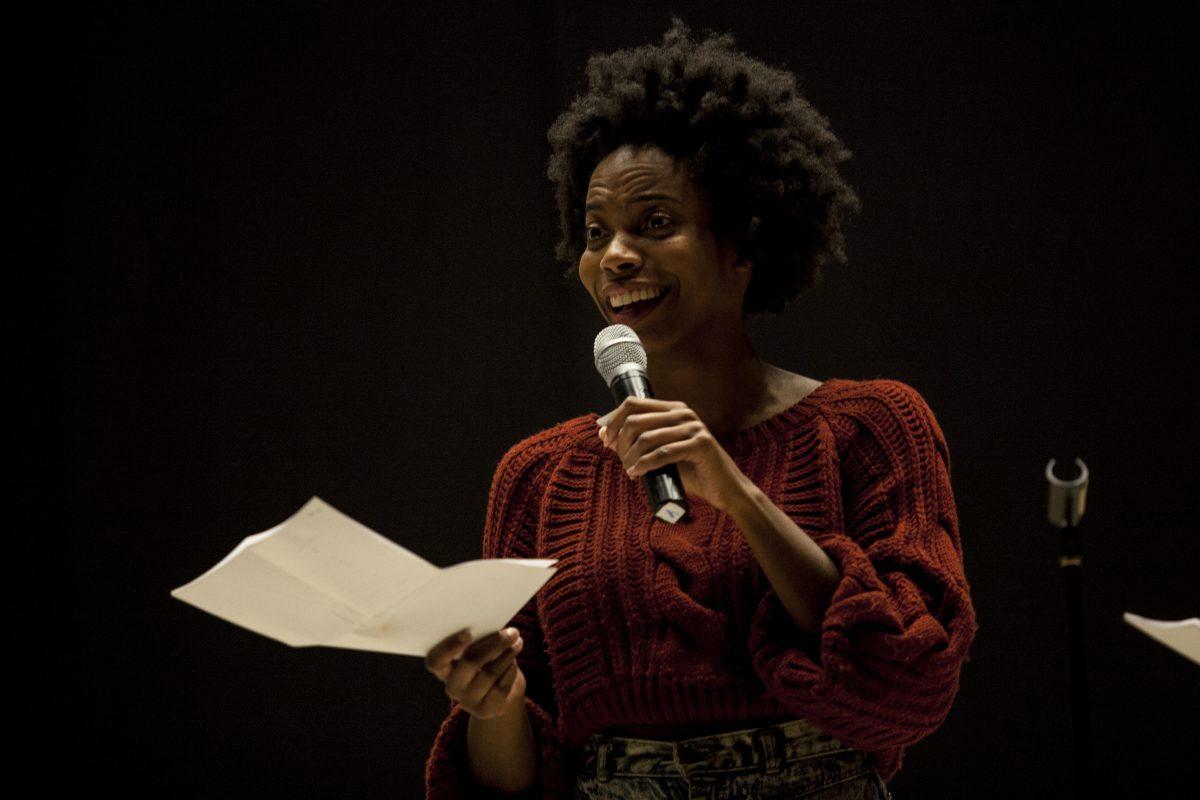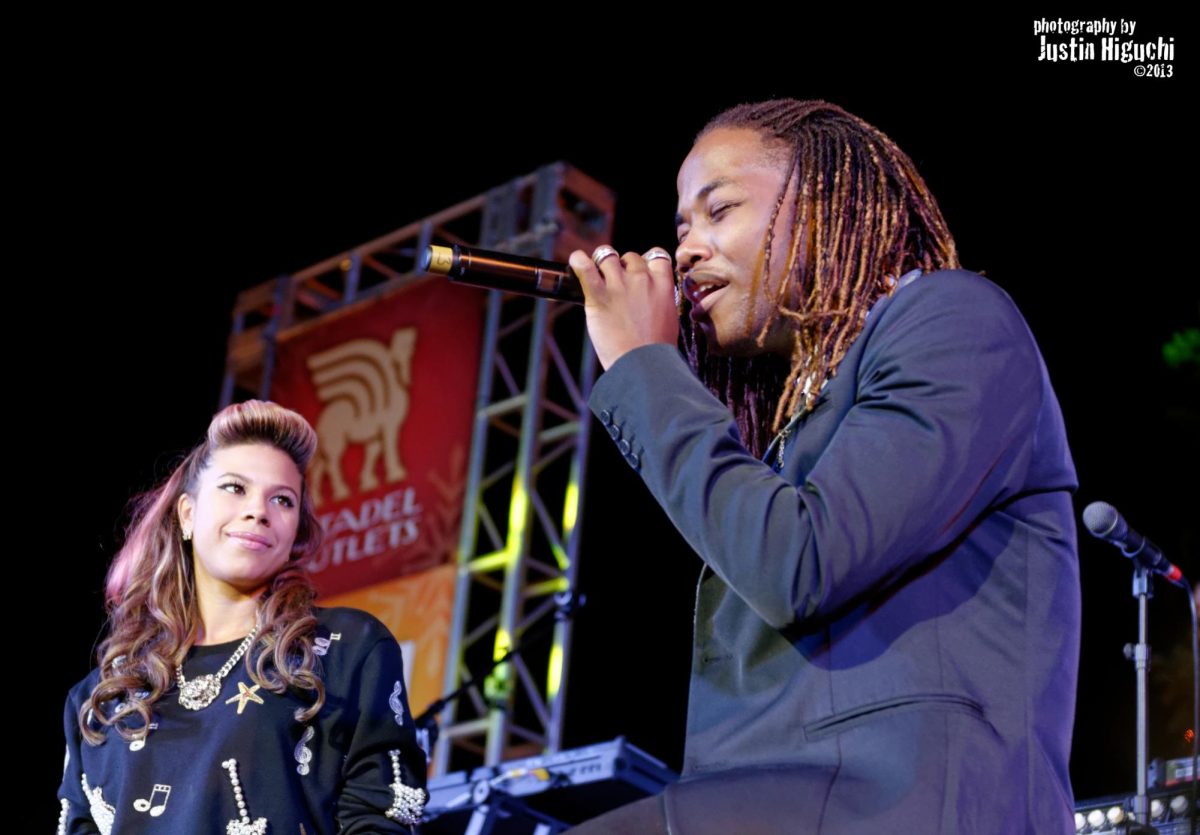Comedian Sasheer Zamata visited campus last Thursday to perform a stand-up routine. Best known for her involvement with “Saturday Night Live,” Zamata first appeared on the show in 2014 and became a repertory player the following year. In addition to answering audience questions, Zamata also took the time to speak to the Wellesley News about the meaning of comedy and her own career trajectory.
Zamata, who lists Lucille Ball, Carol Burnett, Whoopi Goldberg and Sarah Silverman among her comedy idols, was already taking steps towards a comedy career as a college student at the University of Virginia, where she co-founded the improv comedy troupe Amuse Bouche. When asked about what makes good comedy, Zamata responded that she thinks good comedy boils down to honesty: “My favorite performers and writers work from a place of truth, and I try to do the same. Most of my material comes from personal experiences or relationships I have. I like telling stories that bring the audience into my life so they have a better understanding of what I’m saying and why I’m saying it.”
Discussing stand-up specifically, Zamata described a potential definition of the process as “taking the weird stuff in your head that makes you laugh and forming it in a way so other people can understand it.” The way she looks at it, when an audience doesn’t see the same comedic potential she does in a joke, it’s a matter of miscommunication rather than missing humor. “I’ve definitely told jokes on stage that I thought were hilarious, and the audience didn’t,” she said. “But that didn’t mean the idea wasn’t funny; that meant I had to reconfigure the structure of the joke to get the audience to understand how the joke plays in my head.”
One particular fan interaction that has stuck with her over time was with a man from the audience who compared her performance to “a kiss on the cheek followed by a left hook.” “I like to think that’s a pretty apt assessment of my work,” she added.
Regarding the relationship between politics and comedy, Zamata said that humor can be an extremely useful tool to get people talking about politics or issues considered “taboo”: “The news can be very daunting and comedy can help put a palatable lens over it. Also people may have a better time listening to a perspective other than their own if it comes in the form of a joke rather than a rant or an argument.” In addition to SNL, stand-up and her other comedy endeavors, Zamata is a Celebrity Ambassador for the American Civil Liberties Union (ACLU). As an ambassador, Zamata is able to use her comedic abilities and audience to bring attention to issues important to the ACLU. For example, she wrote a video about privilege because the ACLU wanted to open up dialogue on the topic. “I liked that I was able to use humor to break down a topic that makes some people feel uncomfortable and get people to think about it in a different way,” she said.
Regarding her own career, Zamata attributed the most resonant advice she received to Tracy Morgan. “[He] told me that once you get a job, you can be grateful for the opportunity, but eventually you have to stop being grateful and start ‘showing your teeth.’ Stop sitting back and being appreciative and go grab what you deserve.” For Wellesley students interested in pursuing careers in comedy, Zamata had some advice of her own.
“If you’re going to pursue comedy, just know that you’re going to suck for a while, and that’s okay,” she said. “You’re going to make a lot of stuff that you won’t like, and other people won’t really like it either. But you’ll get better at it as you create more, and that’s when it starts to get exciting. If you want to work on the same thing for years and slowly progress artistically in ways that only you may notice—before others do—then do comedy, there may be a huge payoff.
“But if you want to do comedy because you want to get famous immediately,” she warned, “Do. Not. Do. Comedy.”




